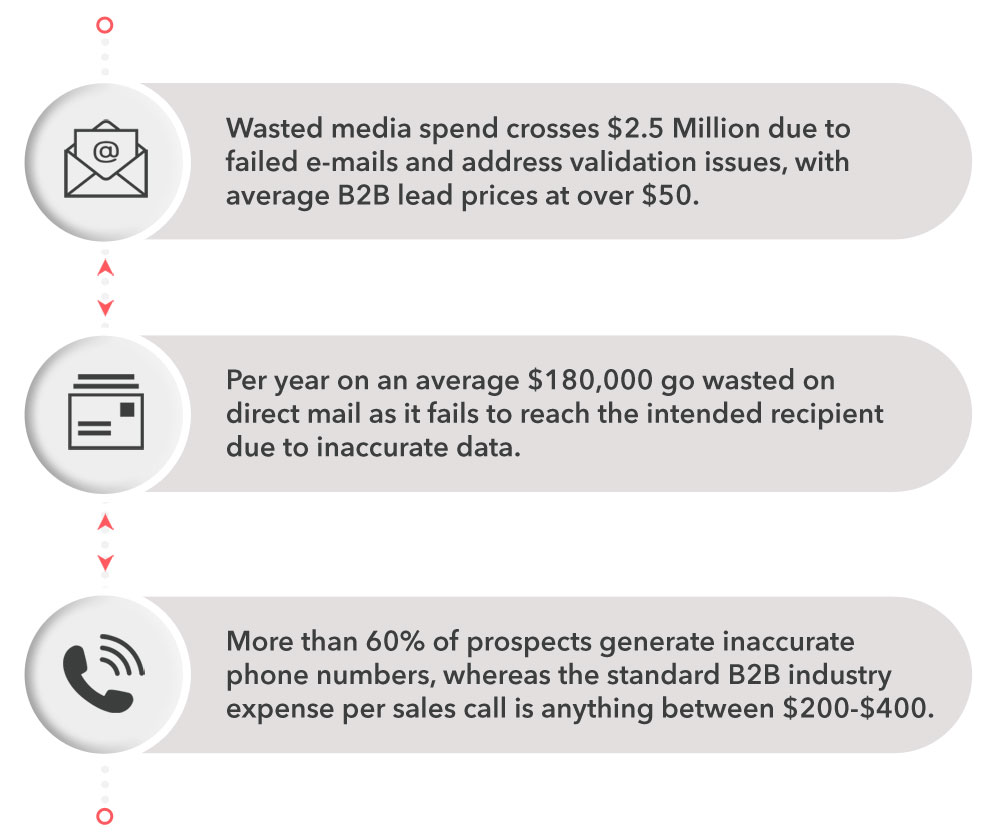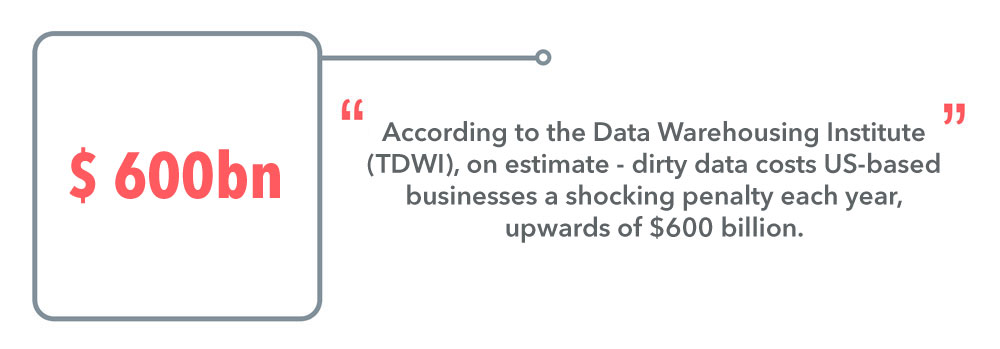Table of Contents
Share this article
Learn from the brightest minds how to predictably and efficiently grow revenue.
Related Content
5 Ways to Use the Ebsta Integration With HubSpot to Improve Sales Performance
How to improve adoption of HubSpot with Ebsta
B2B Sales Benchmarks: 2023 H1 Update
The latest update from the 2023 B2B Sales Benchmarks analysis of over $37bn in pipeline.
How to improve AE quota attainment (according to data)
23% of reps are contributing 83% of revenue. Here's how to solve it (with data)

CRM Best Practices: How to Improve CRM Data Quality
Table of Contents
How to Improve CRM Data Quality
How sure are you that the data held in your CRM system is reliable? Is the process of segmenting data simple? Is it possible to produce precise reports without the need for manual intervention?
You are not standing alone, there are many businesses that are facing these issues.
Everyone has had to endure the proverb, “if you put poor data into CRM, your get poor data out” – but it can’t be denied.
If you have bought the best CRM solution out there but haven’t got the buy-in from the rest of the team, you won’t see the results that you were expecting.
In order to see a return, it must be fully embraced and utilised correctly.
What is CRM Data?
Too often, when people talk about data quality, they’re really just talking about data integrity, or more specifically, data accuracy.
But data quality is more than just data integrity.
Customer Relationship Management (CRM) is an approach to building the connection between company and customers for long-term relationships.
CRM data quality refers to how valuable the information you track in CRM actually is. After all, if you’re going to the trouble of entering it in the first place, your data needs to be high-value.
CRM is now at the core of every aspiring company
Where Does Bad CRM Data Come From?
The term Dirty data / bad data refers to data consisting of any number of incorrect facts or assumptions. It can exist anywhere – your CRM, your ERP system, shared documents, reports etc- and it’s usually a specific type of error or mistake.
According to Techopedia: misleading data, incorrect data, inaccurate data, duplicate data, non-integrated data, misspelled data, non-formatted data, incomplete data, all fall within the category of dirty data.

- Invalid Data: Information that is inserted in wrong fields, records that cause software errors, unprocessable information due to erroneous formatting.
- Fraudulent Data: Intended insertion of wrong information by users or sophisticated CRM bots to take the you out of the competition.
- Duplicate Data: Records of the same customer under various pseudonyms and accounts due to user error.
- Inconsistent Data: Data redundancy in the system that is unchecked over a period of time causing bigger inconsistencies.
- Inaccurate Data: CRM data that was valid in the past years, but was not updated or no longer required.
- Incomplete Data: Records that don’t contain holistic information, requiring additional CRM data fields to make it a functional information.
Many companies overestimate their quality of data and at times even ridicule any chance of dirty data attack to their business. This often causes significant losses in business.

Why is CRM Data Quality Important?
The success of an organization to a great extent relies on an incessant flow of smarter data-driven decisions. The question that arises in this context is: How do you make the right decisions to ensure organizational growth?
- High-quality information and strategy are the pillars of any objective decision taken within an organization. Just imagine if the CRM data, a significant element to be used by the sales and marketing departments of any organization, is filled with bad, dirty or even unreliable data? How successful would marketing campaigns be? Can Lead conversion be even calculated or improved upon? There are so many metrics that are not relevant because of bad data.
- A CRM solution with unreliable data is similar to buildings without foundations. Just as a building cannot stand without its foundations, a customer relationship management system cannot deliver its intended value to the business without up-to-date, high-quality, reliable information.

Improve Your CRM Data Quality with Ebsta
Salesforce is only as powerful as the data that feeds it. Ensure that your CRM has a whole, healthy and continuous diet that looks after itself.
Ebsta automatically enriches Salesforce with missing, incomplete and outdated information and seamlessly connects the gaps so that you don’t have to.
Every email, calendar and contact is effortlessly moved to where it needs to be in Salesforce. We identify every change as it happens, crawl every historic engagement and ensures that the reality outside of Salesforce matches the information inside.
